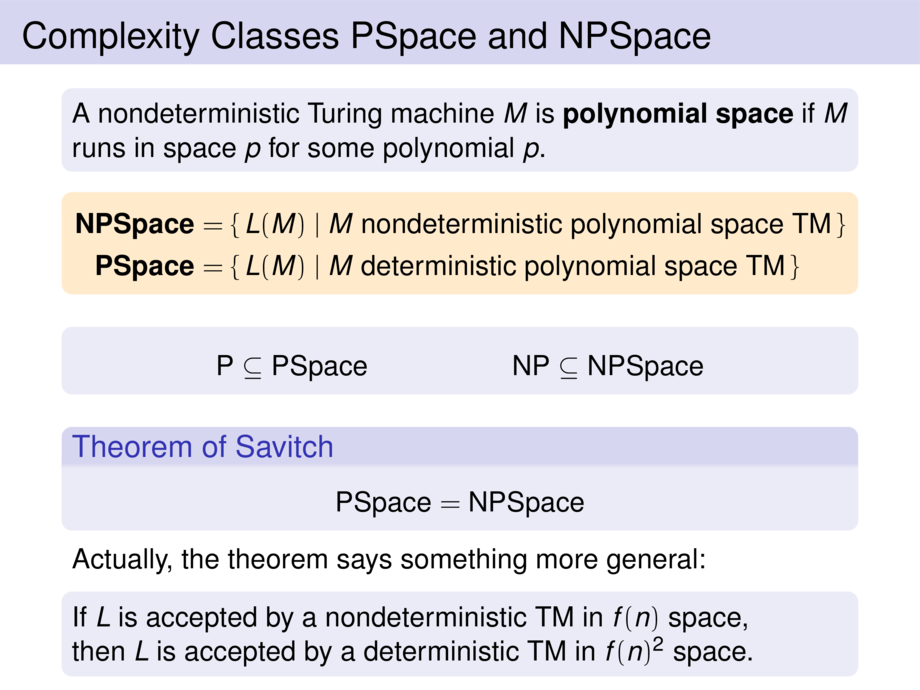



































































































115/122
\begin{frame}{Complexity Classes PSpace and NPSpace}
\begin{block}{}
A nondeterministic Turing machine $M$ is \emph{polynomial space}
if $M$ runs in space $p$ for some polynomial $p$.
\end{block}
\pause
\begin{goal}{}\vspace{-.5ex}
\begin{malign}
\text{\emph{NPSpace}} &= \{\, L(M) \mid \text{$M$ nondeterministic polynomial space TM}\,\} \\
\text{\emph{PSpace}} &= \{\, L(M) \mid \text{$M$ deterministic polynomial space TM}\,\}
\end{malign}
\end{goal}
\pause\medskip
\begin{block}{}
\begin{malign}
\text{P} \subseteq \text{PSpace} &&
\text{NP} \subseteq \text{NPSpace}
\end{malign}
\end{block}
\pause\medskip
\begin{block}{Theorem of Savitch}
\begin{malign}
\text{PSpace} = \text{NPSpace}
\end{malign}
\end{block}
\pause
Actually, the theorem says something more general:
\begin{block}{}
If $L$ is accepted by a nondeterministic TM in $f(n)$ space,\\
then $L$ is accepted by a deterministic TM in $f(n)^2$ space.
\end{block}
\end{frame}

